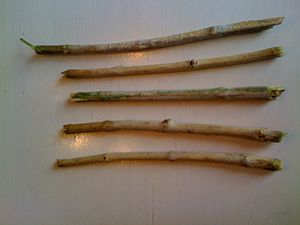Goemon_ said:I started smoking 3 years ago. 2 years ago I started smoking pipe. At that time I didn't wash my teeth exept with a licorice stick.
I didn't pay attention to the appearance of my teeth. Then, something like 1 years ago I realise that my teeth were black. I started to brush my teeth with home made toothpaste (half baking soda, half coconut oil or green clay, plus few drops of mint tree essential oil) and doing oil pulling with coconut oil before meal.
I didn't see much improvement.
I finally get to the dentist yesterday. He said he never saw anything like that in his 35 years career.
He started cleaning the teeth. I have another appointment in two month for him to finish the job.
I will try to stick to cigarillo for now and maybe start again to smoke the pipe tabacco in the form of cigarettes.
There are tooth cleaning kits you can buy online or even in stores, if you don't mind doing it yourself.
http://www.amazon.co.uk/Mammoth-XT-Complete-Dental-Cleaning/dp/B009ZDPORC/ref=sr_1_6?ie=UTF8&qid=1427459925&sr=8-6&keywords=tooth+cleaning+kit
..I've done this myself a few times, after coconut oil pulling. Sometimes I just do it with little scissors, the tobacco stains come off real easy anyway.
I also recently found that scrubbing your teeth with Activated charcoal improves the whiteness. Here's a video of a girl doing it: https://www.youtube.com/watch?v=xETW8UrBuzU






